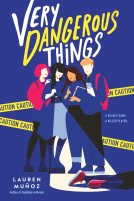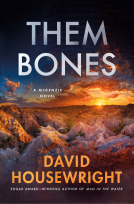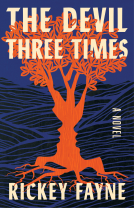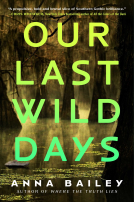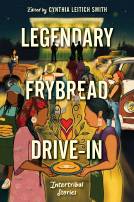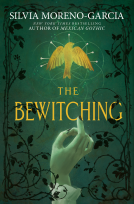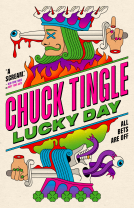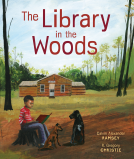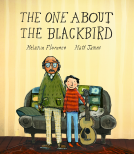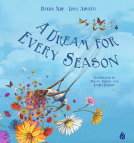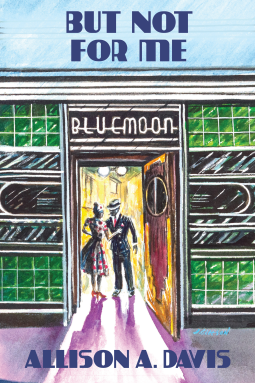
But Not for Me
by Allison A. Davis
This title was previously available on NetGalley and is now archived.
Send NetGalley books directly to your Kindle or Kindle app
1
To read on a Kindle or Kindle app, please add kindle@netgalley.com as an approved email address to receive files in your Amazon account. Click here for step-by-step instructions.
2
Also find your Kindle email address within your Amazon account, and enter it here.
Pub Date Sep 17 2024 | Archive Date Feb 26 2025
Talking about this book? Use #ButNotforMe #NetGalley. More hashtag tips!
Description
1958 San Francisco: Beatniks, Eisenhower, Fillmore District jazz and Major League baseball. As Mayor George Christopher fights an influx of organized crime and redevelopment begins to transform the city, racial and political tensions rise when a Black real estate magnate is murdered.
Kay Schiffner is a practicing lawyer by day, during a time when women were rarely hired as lawyers, and at night, secretly follows her passion for playing jazz at the Blue Moon in San Francisco’s Fillmore District, a neighborhood where good white women weren’t supposed to go.
Leitisha Boone is the Fillmore District’s only Black female club owner, having started her career in her father’s barbecue joint. She’s not about to give up her successful and elegant Blue Moon when threatened by redevelopment and betrayed by men who don’t believe women should run a business, even when threats turn deadly.
When Leitisha is arrested for murder, Kay’s search for the truth leads her from city politics to the mafia, Beatnik poets to union graft. As pressure mounts from her boss, the police force, and organized crime, Kay must make an impossible choice—to save her hard-won job as a lawyer or to risk her own life and livelihood to try and save the friend and her club that gave her music.
But Not for Me is more than a crime story with a murder to solve. Told through the experiences of two women, the story explores the dark side of gentrification in one of America’s most colorful cities.
Advance Praise
A stellar debut! Expertly plotted and exquisitely paced, But Not for Me is a compelling crime novel, a nuanced character study, and a poignant commentary on 1950s San Francisco. Kay Schiffner and Thursday Zimpel are characters worth rooting for, and the San Francisco setting is as beautifully drawn as a perfect sunset over the Golden Gate Bridge. Highly recommended.
-Sheldon Siegel, New York Times Bestselling Author of the Mike Daley/Rosie Fernandez novels
Available Editions
| EDITION | Ebook |
| ISBN | 9781952427626 |
| PRICE | $7.99 (USD) |
Links
Available on NetGalley
Featured Reviews
I am astounded that this is a debut novel! It's an era and a location that I only had a vague knowledge of, but after reading this book, I have developed a fascination with the localised social changes of the era and it is certainly a subject for further research
The year is 1958, the place San Francisco. In a time where women were fighting to be recognised in the workplace, let alone to have careers, Kay Schiffner is a Lawyer who has a passion for Jazz and moonlights in the SF Fillmore District, not a place where an unmarried white woman was rarely seen. The owner of the club is our other protagonist, Leitisha Boone, a female business owne r who is also fighting to retain her business against bigotry and bias against independant women in the 50s, amidst the civil rights movement in the US
San Francisco was going through a period of gentrification, where the poorest areas were being taken over and redeveloped by the affluent minority, who have no qualms at all about how they get what they want, even framing someone for murder. The story follows Kay fighting for justince for Leitisha, through the darkest underbelly of politics, wealth and corrupt police, risking her job and her life
This book is absolutely outstanding. As a debut, it is perfection. The plot is elegant and balances well between the two protagonists, the personalities are well defined and the narrative is descriptive and well researched. I really, really enjoyed this gritty yet elegant masterpiece
Thank you to Netgalley, Bronzeville Books, and Allison A Davis for this impressive and immersive ARC. My review is left voluntarily and all opinions are my own
 Reviewer 1102137
Reviewer 1102137
I keep talking about this book! I love a great mystery, and I really love reading about one of my favorite cities: San Francisco.
One of the most brilliant moves Allison A. Davis makes is to weave the rich history of music, baseball, and poetry into the historical fiction novel. Johnny Mathis, Willie Mays and the San Francisco Giants, and City Lights Booksellers! Brilliant.
Set in the late 50's, the history of the gentrification of Fillmore District was very interesting. Brought to life by characters of the time, this crime story brought forward race relations, women's rights, and the use of power to destroy.
Thank you to netgalley and the publisher for this arc.
This was a beautiful story set in 1950s San Francisco. Two women facing different struggles in this time.
The plot was very intricate and explored both female protagonists very well. It explored a lot of heavy but important topics like race, and how women are treated.
Stunning debut novel.
 Anirood S, Reviewer
Anirood S, Reviewer
“BUT NOT FOR ME”
by Allison A. Davis (2024)
Reviewed by Anirood Singh for NetGalley
Scheduled to be published September 17, 2024, by Bronzeville Books, California, U.S.A.
eBook ISBN: 978-1-952427-62-6; pages: 358
“Urban renewal is negro removal.”
Debut author, Allison A. Davis’s, Adult Historical Fiction: Mystery & Thrillers genre novel, “But Not For Me” is bookended by August 1 and August 29, 1958. She covers this four-week period in 358 pages divided into 77 chapters averaging 4.5 pages each. The title derives from that of the song, “But Not For Me”, originally composed in 1930 by brothers George and Ira Gershwin for the musical, “Girl Crazy”. The story is set in the Fillmore District in San Francisco’s Bay area. The tale unfolds through the eyes of Kay Shiffner, a smart white female piano-playing whiskey-drinking lawyer, somewhat unique for that paternalistic and racially divided time. The focus is on the physical yet also metaphorical Blue Moon bar, and specifically the trials and tribulations of its black owner, Leitisha Boone.
The novel’s dedication provides insight into its premise and objective:
“To Leola King, Queen of the Fillmore, and all the men and women who breathed life into the Harlem of the West.”
Fillmore District’s label derives from it emulating New York City’s black jazz musical locale. The story, then, is a slice of life centered on a few characters earning a living in the jazz entertainment and allied industries, but being thwarted by greedy entrepreneurs using racial laws to bulldoze black residents out of a small area. Conspiracies, dirty tricks, and murder provide the drama to an intriguing story. Davis writes in a conversational, easy-to-read style, facilitated by professional editing. The story has a precise timeline, making it easy to follow. The limited number of characters appear true to life and readers can identify with them and their plight. The foundation and framework of the drama in “But Not For Me” is summed up by her bartender, Walter, who remarks, “Urban renewal is negro removal.”
The protagonist, who learned to play the piano before she could run, is a frustrated lawyer in a male dominated profession and society. She finds solace in the Blue Moon where the music and comradery for most blacks is a temporary respite from racial hatred and the struggle for survival.
Starting with the murder of the owner of the property and attempts by the police to close down the establishment, Kay resolves to help Leitisha. An ally is Thursday Zimpel, a white Detective Inspector, unique in a racially repressive community. Through hard work and determination they are able to free Leitisha on a charge of murder, a battle won in a war that rages on.
Being a “non-white” (an official classification by the government of South Africa of persons of color during its race-based segregation policy, 1948-1994) who witnessed mass removals under the label of slum clearance, I was naturally and immediately drawn to “But Not For Me”. Such background enables me to respectfully highlight some perceived but limited shortcomings of the novel, in the belief that my views could be used to improve it.
The conversational but serious, visual, dramatic opening in undertones sets up the story well. This, alongside the guise of “redevelopment” and the devious means to achieve it promises to provide the drama and intrigue necessary for a mystery-thriller genre. However, some disappointment set in as I read further. I could not find the link between the title and the substance of the story. Some of the chapters, all being short, have little substance and do not advance the story nor reveal character. The realistic, intriguing murder scene and introduction to what seems like one honest cop in a city plagued by organized crime is not carried through realistically, given the frequent mention of “LCN”, La Cosa Nostra, the Mafia. With respect, Kay’s character is not well developed and did not evoke empathy from me, unlike Zimpel, who I could readily identify with. Frequent name-dropping, of songs and artistes does not help – “But Not For Me” could have been more enjoyable if known jazz performers were turned into fictionalized characters appearing at venues in the district. The closing of some chapters with a “black limousine’ moving in or out is unconvincing. The unholy alliance established by the San Francisco Redevelopment Agency, the California Department of Alcohol Beverage Control (“ABC”), the police, rich real estate developers, and the LCN has not been exploited sufficiently to heighten and sustain the intrigue and suspense in a crime thriller.
A smile followed by King’s familiar greeting, “Oh! How ya doin’, sugar?” at her small Blue Mirror Cocktail Lounge at 935 Fillmore strongly contrasts with the entrapment scene in Chapter 15. This incident actually happened, but has not been acknowledged by the author. I believe that had “But Not For Me” been a fictionalized biopic of Leola King and some jazz artistes, against a backdrop of race-based removals, the story and characters would have been more intriguing and engrossing, while also being realistic. She could have been the vehicle for a fictionalized tale based on her multiple tragic encounters until she left Fillmore and passed on at age 96. This would have been a fitting tribute to a hero. If, for example, the writer was guided by selected scenes from movies with the theme of jazz, such as “Stormy Monday”, “Cotton Club Encore”, and “I Call Him Morgan”, fused with police corruption movies like “Chinatown” and “L.A. Confidential”, I respectfully submit that Davis would have a bestseller. Jazz and its accompaniment, such as lifestyle, culture, fashion, cuisine, and language were successful American exports globally. A visual writing style, such as in a screenplay, could result in a series of crime-thriller novels and possibly also a movie with prequel and sequels a mini television drama series.
Notwithstanding some limited shortcomings, I have no hesitation in awarding “But Not For Me” 5 out of 5 stars, and recommend it to historical fiction, jazz, and mystery-thriller aficionados.
This book is set over four weeks in 1958,
San Francisco was a time of social change and urban redevelopment. It was a time in history filled with music, civil and racial unrest, political intrigue, and organized crime.
What a debut novel!
I thoroughly enjoyed this book and learning about the controversial redevelopment of the Fillmore District of San Francisco.
The book centres around two formidable protagonists who are determined to have the space to work and create a profitable business: Leitisha Boone, the formidable club owner of the Blue Moon in the Fillmore District, and Kay Schiffer, a tenacious lawyer and jazz pianist on the side.
Leitisha Boone, a business owner, is fighting to keep her club open and opposing redevelopment plans to shut down her business and the communities of Fillmore District forcibly. Kay Schiffner, a lawyer, is a woman on her own in the legal profession who releases her tension and frustration playing jazz on the piano in the clubs.
The story centres around a murder investigation, and Kay helps the investigating detective, Thursday Zimpel, uncover the truth and ensure the perpetrator is brought to justice. The investigation uncovers corruption in the police force, the role of organised crime in corporate redevelopment, and the lengths influential people will go to in gentrification.
Davis crafts an absorbing, well-researched historical thriller with relatable characters and a vivid narrative about racial prejudice and corporate greed. The book is full of energy, from the chapter structure to the music, an essential part of the story, and, of course, the story.
I highly recommend this book to those who enjoy historical thrillers.
Thank you, NetGalley and Bronzeville Books, for the opportunity to read this ARC.
“But Not For Me” is a captivating dive into 1958 San Francisco, blending jazz, politics, and crime against the backdrop of major societal shifts. Mayor George Christopher grapples with organized crime while redevelopment transforms the city, and racial tensions escalate with the murder of a Black real estate magnate. The narrative unfolds through the experiences of Kay Schiffner, a trailblazing lawyer and jazz enthusiast, and Leitisha Boone, the resilient Black female club owner of the Blue Moon in the Fillmore District. In a male-dominated legal profession, Kay finds solace in jazz at the Blue Moon, challenging societal norms. The story explores the dark side of gentrification, shedding light on racial and political struggles during this pivotal time.
Davis crafts a compelling tale with a conversational, easy-to-read style, navigating the complexities of city politics, the mafia, and the Beatnik era. The characters, especially Kay and Leitisha, come to life, providing readers with relatable struggles and triumphs. The precise timeline facilitates a seamless reading experience. The novel delves into the consequences of urban renewal, exposing the harsh realities faced by the characters. The commentary on gentrification and racial issues resonates, offering readers a slice of life centered on those striving to make a living in the jazz scene, hindered by greedy entrepreneurs and racial prejudices. While the narrative succeeds in creating a vivid portrayal of the Fillmore District, some readers may find the link between the title and the story’s substance unclear. Additionally, certain chapters feel lacking in substance and character development, hindering the overall flow of the story. Despite these points, the novel successfully explores the impact of gentrification and racial tensions, shedding light on a dark chapter in American history.
The protagonist, Kay, emerges as a frustrated yet determined individual, grappling with societal expectations and racial prejudices. Her commitment to justice and friendship with Leitisha adds depth to the narrative. The book introduces readers to a unique Detective Inspector, Thursday Zimpel, offering a fresh perspective on racial dynamics within the community. While the novel touches on the complex issues of the time, some readers may feel that Kay’s character could be more developed to evoke greater empathy. The incorporation of jazz elements, though frequent, could have been enhanced by fictionalizing well-known performers, adding an extra layer of enjoyment for jazz enthusiasts. Despite these considerations, “But Not For Me” provides a thought-provoking exploration of historical fiction, jazz, and mystery-thriller genres. The portrayal of societal challenges, coupled with the well-defined characters and engaging narrative, makes it a commendable debut novel. For readers interested in the intersection of history, crime, and jazz, this book offers a compelling journey into a fascinating era.
An absolute cracker, opening up the realisation of some of the real struggles faced by non-whites in the late 1950s. Thank you NetGalley for the ARC.
 Dru L, Reviewer
Dru L, Reviewer
Kay and Leitisha are two strong women who fight adversity in the job they have chosen and when crime and murder comes into play, they are thrust in the middle of all this mayhem and it’s this conundrum that keeps me reading until the end. The author’s writing style made it easy to follow along and the details of the subject matter was evident by the research that was done as I felt myself walking the paths of the two women in their pursuits. When Leitisha is accused of murder, Kay searches for clues and uncovers the underbelly of organized crime and politics. Her dogged determination as well as working alongside the detective lead to the revelation and identity of the killer. Overall, a good read.
This was a fascinating murder mystery centred around two strong female character in a time where racism and sexism were so prominent. I found navigating the battle with race, politics, gender bias and greed both infuriating and empowering. It was a stark reminder of the dark history we have and how far we still need to go.
The main characters were facing a constant uphill battle with push back from family, friends, and employers for simply doing what was right. The characters were likeable and watching Kay finally stick it to the man was enjoyable even though her decisions along the way were questionable.
This was a great reminder that doing the right thing will not always be easy but will be worth it in the end.
Huge thank you to Bronzeville Books and NetGalley for the opportunity to enjoy this advanced copy.
Love love loved this book. I couldn’t put it down. It had a hold on me and I just needed to keep reading to find out more!
Thank you so much to be able to review this
 Karin C, Reviewer
Karin C, Reviewer
Kay Schiffner is a practicing lawyer by day, during a time when women were rarely hired as lawyers, and at night, secretly follows her passion for playing jazz at the Blue Moon in San Francisco’s Fillmore District, a neighborhood where good white women weren’t supposed to go. Leitisha Boone is the Fillmore District’s only Black female club owner, having started her career in her father’s barbecue joint. She’s not about to give up her successful and elegant Blue Moon when threatened by redevelopment and betrayed by men who don’t believe women should run a business, even when threats turn deadly. When Leitisha is arrested for murder, Kay’s search for the truth leads her from city politics to the mafia, Beatnik poets to union graft. As pressure mounts from her boss, the police force, and organized crime, Kay must make an impossible choice—to save her hard-won job as a lawyer or to risk her own life and livelihood to try and save the friend and her club that gave her music. I found it very hard to believe this was a debut novel. This reads like it was written by a well seasoned pro. It captures a little-known time in San Francisco when racism was rampant. Fabulous characters, great location and an incredible mystery. I cannot recommend this highly enough.
 Reviewer 1001879
Reviewer 1001879
This was a gripping thoroughly enjoyable read that raised your hackles at the sense of injustice. Set in 1950's San Francisco in the Fillmore area it tells the story of how big business with the help of backhanders and mafia intimidation destroyed a local community under the guise of cleaning up the streets. Murder, intrigue and racism figure prominently. The lead characters are great, a feisty female lawyer and a hardened homicide inspector. This was well worth reading.
It's in the 1950s. Kay Schiffner was a lawyer. For a woman to be independent was to be frowned upon at that time. Men didn't like women to have career, let alone be prosperous in her own business like Leitisha Boone. Her club, The Blue Moon, where Kay often played jazz, was threatened by redevelopment.
When a prominent black businessman who opposed the redevelopment was murdered, Leitisha was accused and imprisoned. It's up to Kay and Thursday Zimpel, a white Detective Inspector who was concerned with injustice against black people, to reveal the truth and bring justice.
This is a combination of a murder mystery and a poignant tale of racial injustice and prejudices, of women's struggles for freedom and recognition. Add the unique atmosphere and pop culture of the 1950s into it, and you'll be entertained as well as inspired.
 Veerle V, Reviewer
Veerle V, Reviewer
1958, Kay Shiffner, a lawyer and a jazz pianist, tries to navigate her way through a world that expects women to not do those 2 things and become mothers and housewives instead. The club where Kay plays, The Blue Moon, is being threatened by redevelopment. The club is owned by Leitisha Boonen the only Black female club owner in the neighbourhood.
At some point Letisha is arrested for the murder on her landlord. Kay starts searching for the truth and finds a new vocation. She puts (aspects of her) her own life at stake and is being confronted with different kinds of corrupted people. At the same time she can count on other people, such as Michael Zorn, a fellow lawyer, and Thursday Zimpel, a police inspector, which provides a nice dynamic.
I love how the challenges for women in those days are portrayed in this book: the burden of patriarchical expectations, the remarks, the treatment they get... I just read another ARC about the American feminist movement and everything Muriel Fox explains in there, is reflected very well in this fictional story: doing work as a lawyer, but the credits go to a man because a client may not want it, a black woman being framed for murder because of corruption, the general racism they experienced, the minor everyday issues...
The book also shows how corruption and gentrification work and how people from minorities in the USA were affected by it in the late fifties. It's more than just a crime story and that's what I enjoyed the most.
Thank you Allison A. Davis, Bronzeville books and NetGalley for this ARC!
“But Not for Me” is a gripping novel set in 1958 San Francisco amidst the Fillmore District's jazz-filled nights and the Eisenhower era's political undercurrents. Kay Schiffner, a pioneering lawyer by day and a jazz enthusiast by night, navigates a world where her professional and musical passions collide with societal expectations. In the same spirited neighborhood, Leitisha Boone, a formidable Black club owner, fights to keep her elegant jazz club, the Blue Moon, afloat against threats of redevelopment and sexism. The plot thickens when Leitisha is accused of murder, pulling Kay into a dangerous investigation that stretches from city politics to the mafia.
This book brilliantly combines a murder mystery with a poignant commentary on gentrification and the struggles faced by women in male-dominated fields during the 1950s. The author masterfully portrays the era’s racial and political tensions through the lives of two strong, defiant women. “But Not for Me” is more than just a crime story—it’s a vivid exploration of resilience and friendship against the backdrop of one of America’s most turbulent times. It is a must-read for anyone who loves well-crafted historical fiction with a powerful message.
 Media/Journalist 1023892
Media/Journalist 1023892
Timeless Elegance: "But Not for Me" Captures 1958 San Francisco in All Its Glory
In "But Not for Me," set against the vibrant backdrop of 1958 San Francisco, readers are treated to a novel that is as rich in historical detail as it is in emotional resonance. This book masterfully transports its audience to a bygone era, enveloping them in the charm and complexity of a city on the cusp of change.
The story unfolds with the elegance of a classic film, capturing the essence of 1950s San Francisco through meticulous descriptions and evocative storytelling. The author’s attention to detail is nothing short of remarkable—every page is a window into the city’s bustling streets, glamorous nightlife, and the palpable sense of optimism that defined the era. From the iconic Golden Gate Bridge to the lively cafes of North Beach, the setting is brought to life with such authenticity that readers can almost hear the jazz music and feel the fog rolling in.
The characters in "But Not for Me" are portrayed with a depth that resonates deeply. Each figure is intricately developed, reflecting the nuanced social dynamics and personal struggles of the time. Their interactions and personal growth are portrayed with sensitivity and insight, making their journeys both relatable and profoundly moving. The novel’s exploration of themes such as love, ambition, and self-discovery is handled with a grace that underscores the universal nature of these experiences, even in a specific historical context.
The narrative is enriched by its historical backdrop, but it is the emotional core of the story that truly captivates. The author deftly balances the romance and drama of the era with a contemporary relevance that ensures the story remains engaging for modern readers. The dialogue crackles with period-appropriate wit and charm, adding an extra layer of authenticity to the characters’ interactions.
"But Not for Me" is more than just a historical novel; it’s a celebration of a time and place that continues to capture the imagination. It’s a beautifully crafted work that shines with the warmth and sophistication of its setting. For those who cherish a well-told story that immerses them in a specific time and place, this book is an absolute gem.
 Bruce R, Reviewer
Bruce R, Reviewer
This debut novel is so much more than a well paced crime novel with great characters. This historical novel focuses on the gentrification of the Fillmore district in San Francisco in 1958 and explores the racial injustice and misogyny of the era. Full of engaging characters and an action packed whodunit, this one kept me reading late into the night. I didn't want to leave these characters behind. We can only hope this is the beginning of a series. Highly recommended
Thanks to NetGalley and Bronzeville Books for an advanced reader copy.
A fresh voice in thriller writing, and what a fabulous novel Ms. Davis has created! First of all, the setting: 1950s San Francisco and named after the historic Fillmore music venue, the setting conjures up a brilliant atmosphere of an era long gone by. Secondly, the main characters: an aspirational, resilient young lawyer and a pragmatic, ‘seen-it-all-before’ police inspector. Thirdly, the themes: politics, societal change and the arts all feature shine through the less salubrious societal issues of the times, such as political corruption, misogyny and inequalities. The setting is beautifully evoked, and the storyline brilliantly executed, so I can only hope this novel represents the first in a planned series as I read the last page hoping for more! Thank you to NetGalley and to the publishers for letting me read a copy early, by way of an ARC.
A wonderful (presumably) start to a new series. This book is at times hard to read because it is unflinchingly accurate about how hard it was in the 1950s to be a POC, a woman, LGBTQ+ or basically anyone who wasn't a Christian white male. However, it is a whip sharp mystery/thriller with great characterization and a pleasantly twisty plot. Even the characters who are "good" are fully fleshed out (to the point of being occasionally jerks). I look forward to more about Kay in the future.
 Kathy P, Educator
Kathy P, Educator
4.5 rounded up
Historical fiction at its finest. Great characters and story. Thanks to Netgalley for the opportunity to read this book
 Ethel F, Reviewer
Ethel F, Reviewer
WOW what a book!!! This debut novel really hit the mark. Set in San Francisco in 1958 it is the story of redevelopment in an all Black area called the Fillmore District. : Leitisha Boone is the only female owner of a Black club called the Blue Moon and is being harassed into selling her club as the area is to be redeveloped. Kay Schiffner is a lawyer who sometimes goes to the Blue Moon and sometimes plays piano there since she is a lover of jazz. Then we have Thursday Zimpel who is a cop and the Fillmore is his district to patrol. With the murder of a wealthy Black man, who could the murderer be? With Leitisha being framed and sent off to jail, Zimpel and Kay become involved in solving the crime. Corruption and racism run rampant.
As soon as you open the book, from page one you are pulled into the story. Well written with excellent character development, this book is one you cannot put down. While this is a debut novel, it is my hope there will be a series that at least keeps Thursday Zimple turning up in the pages. My thanks to NetGalley for this ARC in exchange for an honest review.,
Readers who liked this book also liked:
Cynthia Leitich Smith; Kate Hart; Eric Gansworth; Marcella Bell; Darcie Little Badger; Karina Iceberg; Kaua Mahoe Adams; Andrea L. Rogers; Cheryl Isaacs; Christine Hartman Derr; Brian Young; K. A. Cobell; Jen Ferguson; A. J. Eversole; Byron Graves; Angeline Boulley; David A. Robertson
Children's Fiction, Multicultural Interest, Teens & YA
Calvin Alexander Ramsey, illustrated by R. Gregory Christie
Children's Fiction, Historical Fiction
Christine Alemshah
Children's Fiction, Multicultural Interest, Parenting & Families
